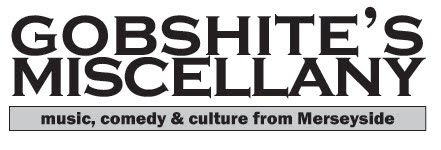Now, unluckily for Miss H, being comfortable 21st Century 'pretendy' lefties, me and Mrs H have decided that there'll be no Disney Channel in the house, so Children's BBC is our mainstay.
Luckily the BBC is producing a handful of the best programmes airing anywhere on the planet, and the two funniest.
The first is the aforementioned BH&LH and the other is Horrible Histories, adapted from the best selling books by Terry Deary - more than 200 and counting. His latest WII novel Put Out The Light, signed by the author for Miss H on Saturday at an in store, is being devoured. It's a multi POV book which looks at the blitzes of the second war and how they affected both British and German Cities.
However, I think Deary will be known most for Horrible Histories because it's funny, witty, clever, intelligent and iconoclastic in its approach to explaining history to the pre-teen market.
Sure, it's light on context, but it makes up for its lack of methodological rigour in its post modern plundering of pop culture to explain the Romans, the Greek empires and British history of all eras. I have a friend who teaches Egyptology at the University of Liverpool who uses a sketch in an introductory lecture to first years.
The actors help too: Mathew Baynton, known for his work as Deano in BBC's Gavin & Stacey, Sarah Hadland (from BBC's Miranda), Martha Douglas Howe and the annoyingly talented Ben Willbond are among the pick of a cast which really gathers together a who's who of modern British comedy's top acting talent.
By far the funniest actor on display in the funniest ongoing sketch is The Mighty Boosh's Simon Farnaby as Death in the section called Stupid Deaths, where, er, stupid historic deaths are brought to life.
The sketches are brilliant but for my money it is the songs that win out every time. From heavy metal Vikings to High School Musical Spartans, its' clever appropriation of modern pop idioms to explain broad historical themes and periods - it is both laugh out loud funny and bears frequent watching, as our house can testify.
My favourites, however, are the Westlife style parody of the four King George's of England and the tipper toppermost is Baynton as Charles II of England as an Eminem-style, self styled rapping King of Bling.
